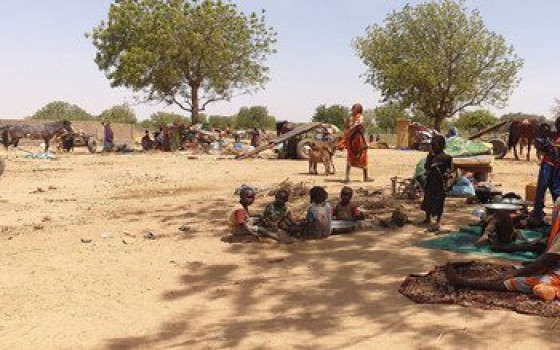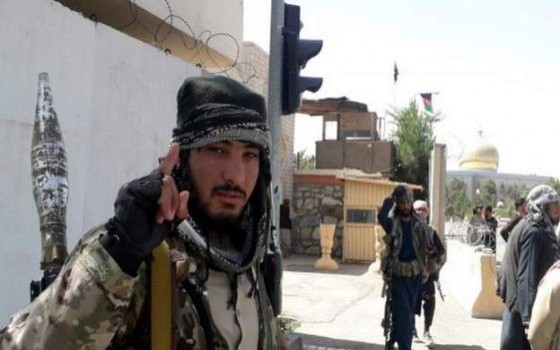
The world remembers again the situation in Sudan... and the worst displacement crisis

- Europe and Arabs
- Friday , 29 December 2023 16:39 PM GMT
Brussels - New York: Europe and the Arabs
Eight months after the collapse of the security situation in Sudan and the outbreak of conflict between the government army and the Rapid Support Forces, the world began to remember again the situation in the country, especially after being preoccupied with the Ukraine file and the situation in Gaza.
European Union foreign policy coordinator Josep Borrell said that eight months after the start of the war in Sudan, more than 7 million people were displaced. He added through a post on the X platform (formerly Twitter): According to the United Nations, this is the worst displacement crisis in the world today: There is Sudan has more internally displaced people than any other country on Earth.
The United Nations daily news bulletin, a copy of which we received on Friday morning, said that the World Food Program strongly condemned the looting of food supplies from its warehouses in the Sudanese state of Al-Jazira, at the end of last week, after members of the Rapid Support Forces stormed it after the group took control of Wad Madani.
The program indicated that the warehouse contained enough stock to feed nearly 1.5 million people suffering from severe food insecurity for one month in the state, where the new attack forced more than 300,000 people to flee. This included specialized foods aimed at preventing and supporting the treatment of malnutrition for more than 20,000 children and pregnant and breastfeeding women.
In a statement issued yesterday, Thursday, Michael Dunford, World Food Program Regional Director for East Africa, called on the Rapid Support Forces to ensure the protection of humanitarian aid, staff and buildings belonging to humanitarian organizations in areas under their control.
He added: “The Sudanese people, already in despair and fleeing fighting, are now robbed of the vital assistance they need. This is intolerable and must stop.”
The World Food Program said that it was forced to temporarily stop distribution operations in Al-Jazira State following the incident, and that it is restructuring its humanitarian response, as it began some distribution operations in the states located to the east, where people fleeing Al-Jazira have taken refuge.
The program stressed that its operations represent a lifeline for approximately one million desperate people in Gezira State, and that the looting of its buildings undermines its operations “at a time when nearly 18 million people face acute hunger.” The program renewed its warning of an “imminent hunger catastrophe” in Sudan if people are unable to receive aid.
Conflict hinders access to those in need
On the other hand, the United Nations Office for the Coordination of Humanitarian Affairs (OCHA) warned that the spread of conflict in Sudan is hampering efforts to reach civilians in need, including those newly displaced due to the violent fighting that took place in Gezira State earlier this month.
Over the past two weeks, about 300,000 people have fled from areas inside the city of Wad Medani and neighboring villages. Humanitarian organizations are working to provide assistance to those who have reached other states - including Gedaref, Kassala, Red Sea, Sennar, White Nile and those who have crossed the border into South Sudan.
However, OCHA said there is an urgent need for additional resources, including shelter, food and other essential items, as available stocks are limited and transporting supplies remains extremely difficult.
In Gedaref State, an estimated 15,000 people have sought refuge in host communities. Humanitarian partners there are intensifying their efforts to provide food, water, sanitation, hygiene and health support, in addition to protection services to the displaced upon their arrival.
Sudan is one of the most difficult places in the world for humanitarian workers. It is estimated that nearly 25 million people will need humanitarian relief in 2024, most of them in hot conflict areas – including Khartoum, Darfur and Kordofan – which are increasingly difficult for aid agencies to reach.












No Comments Found